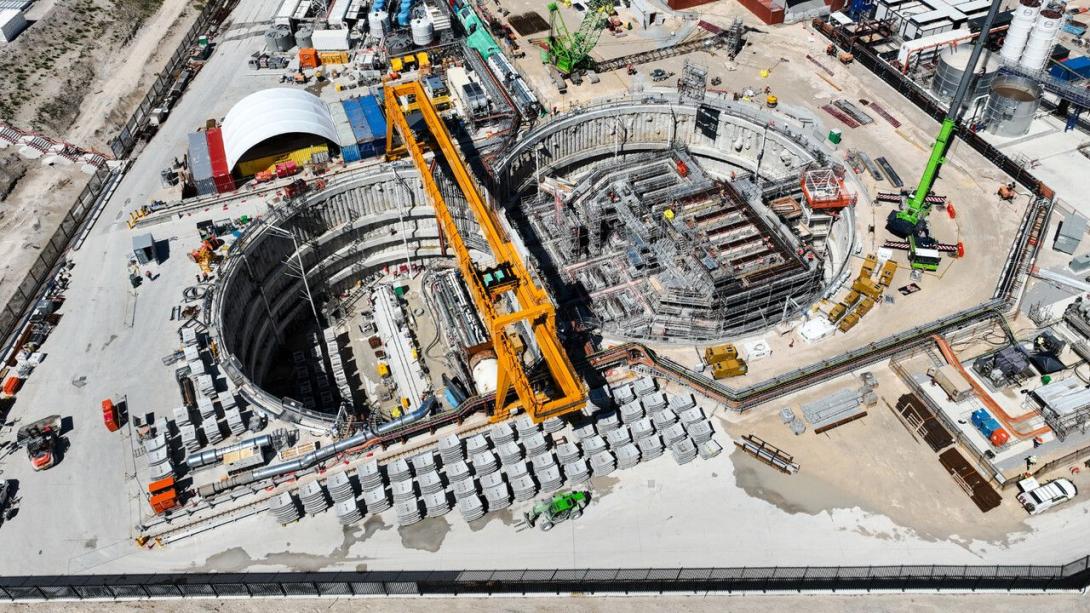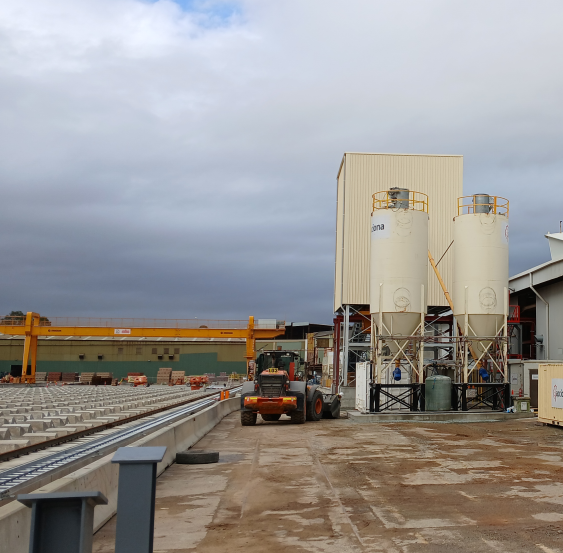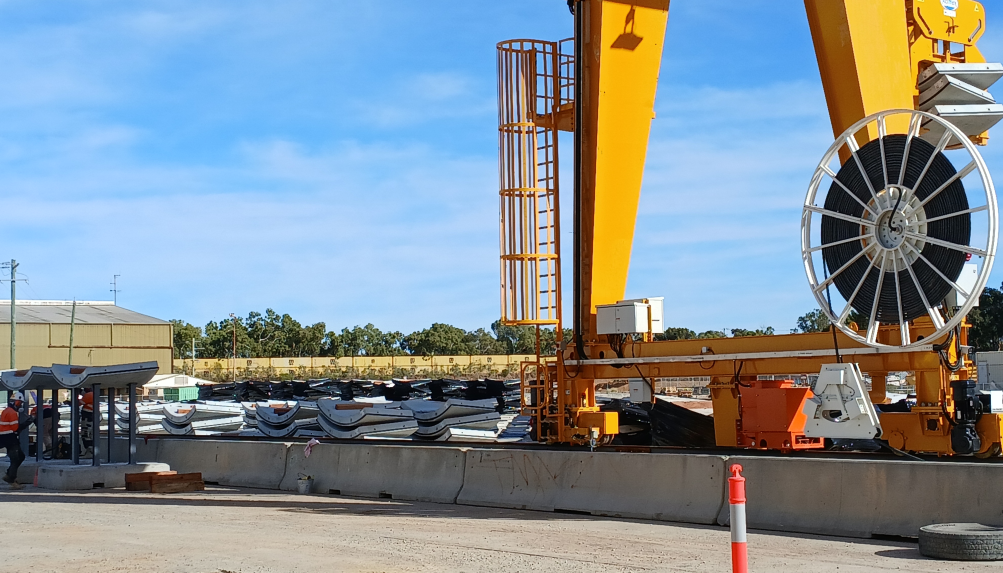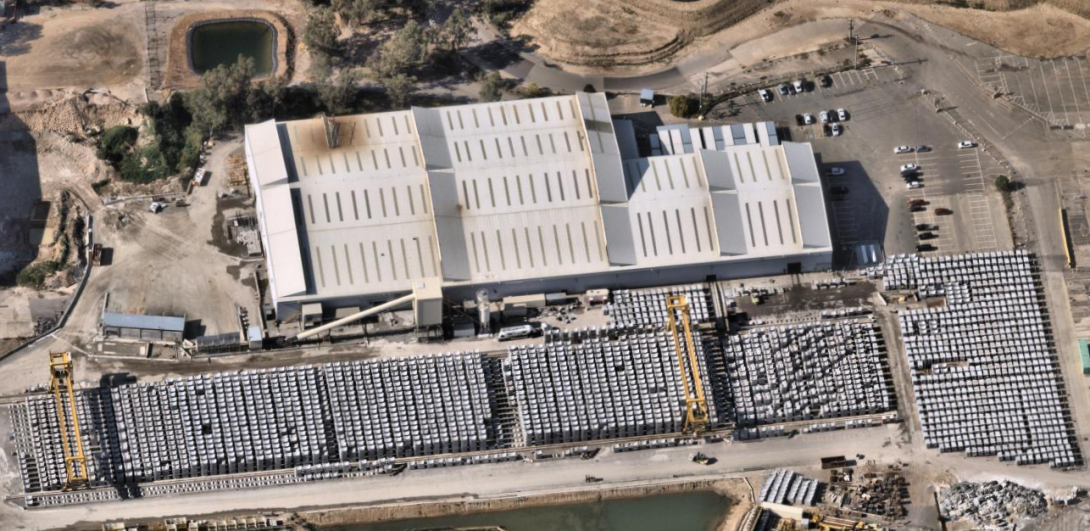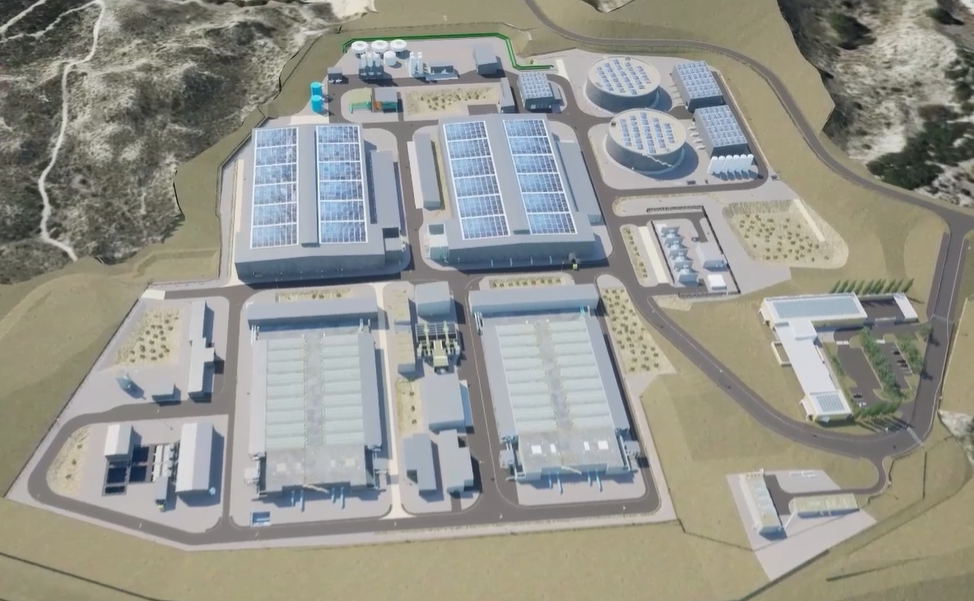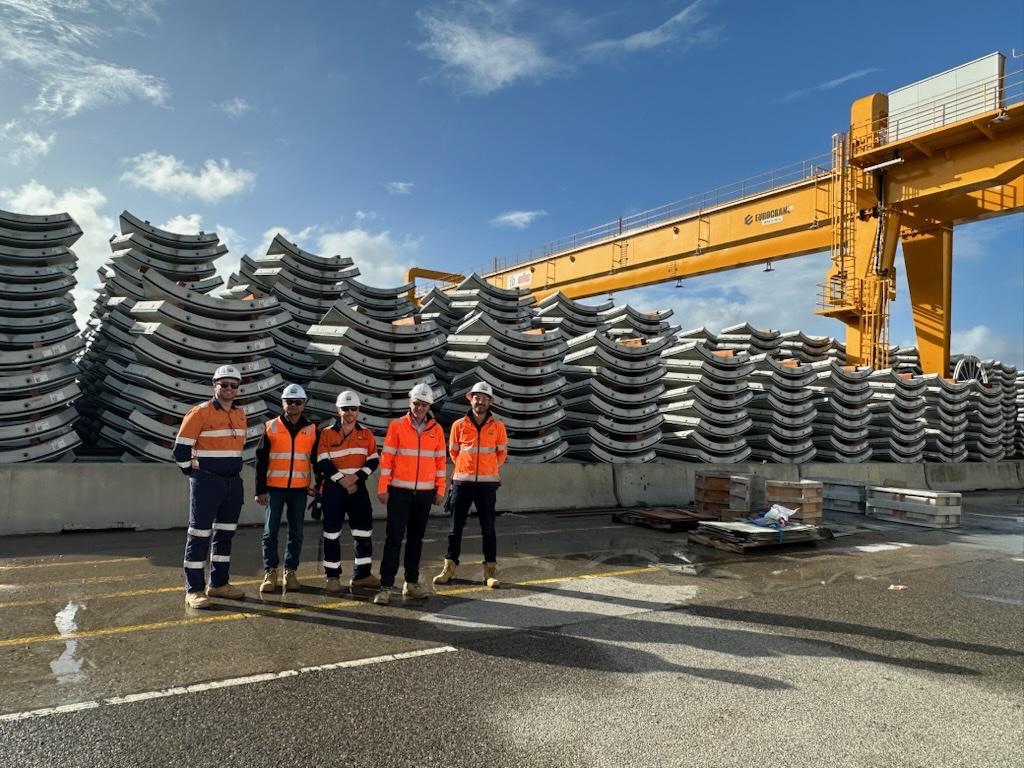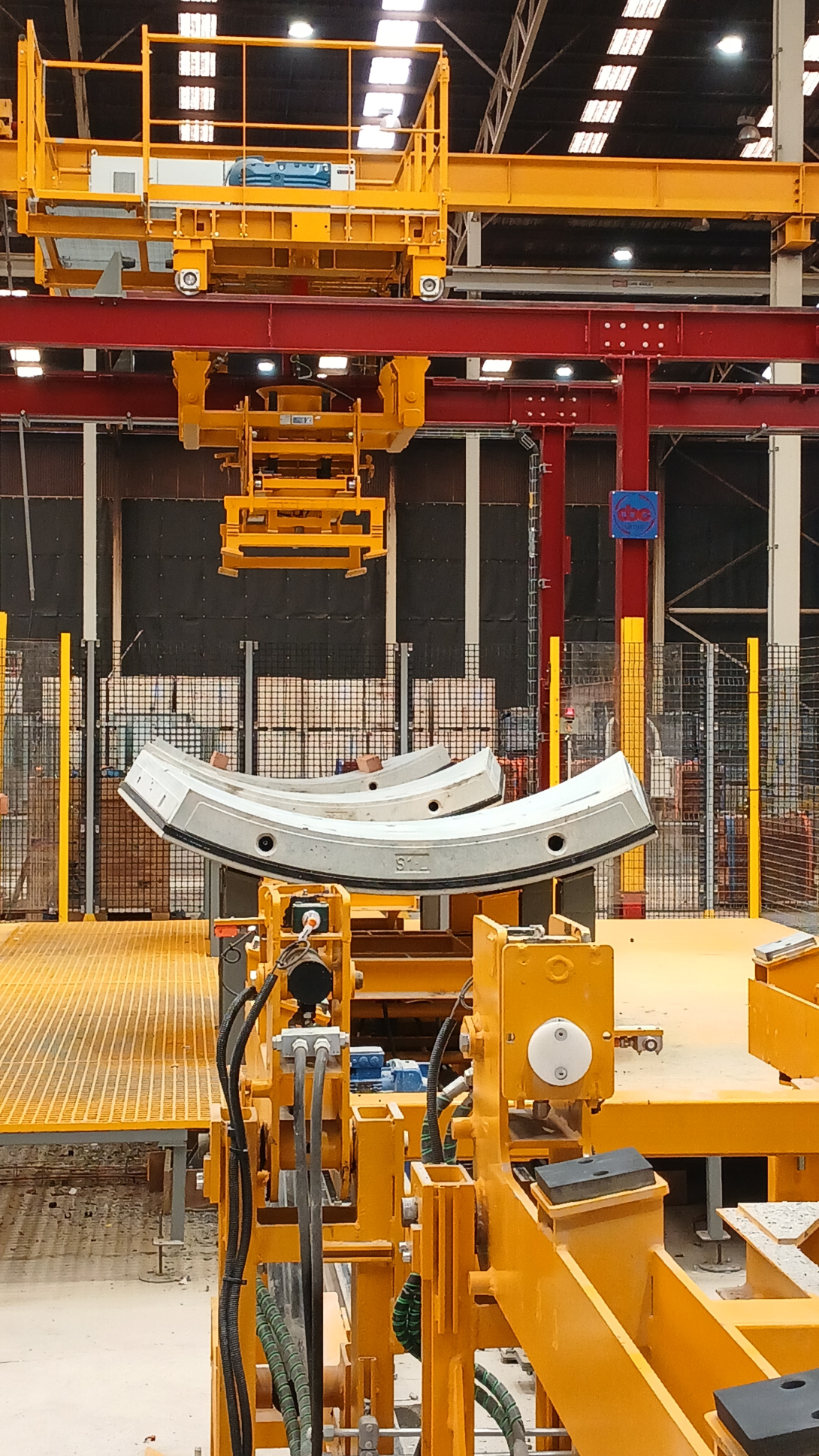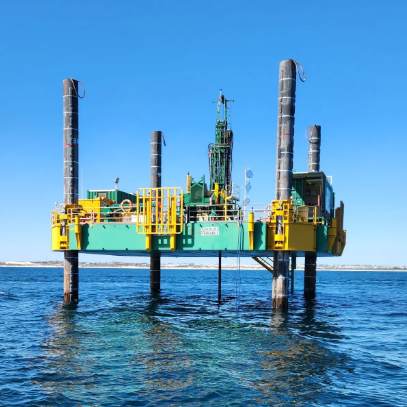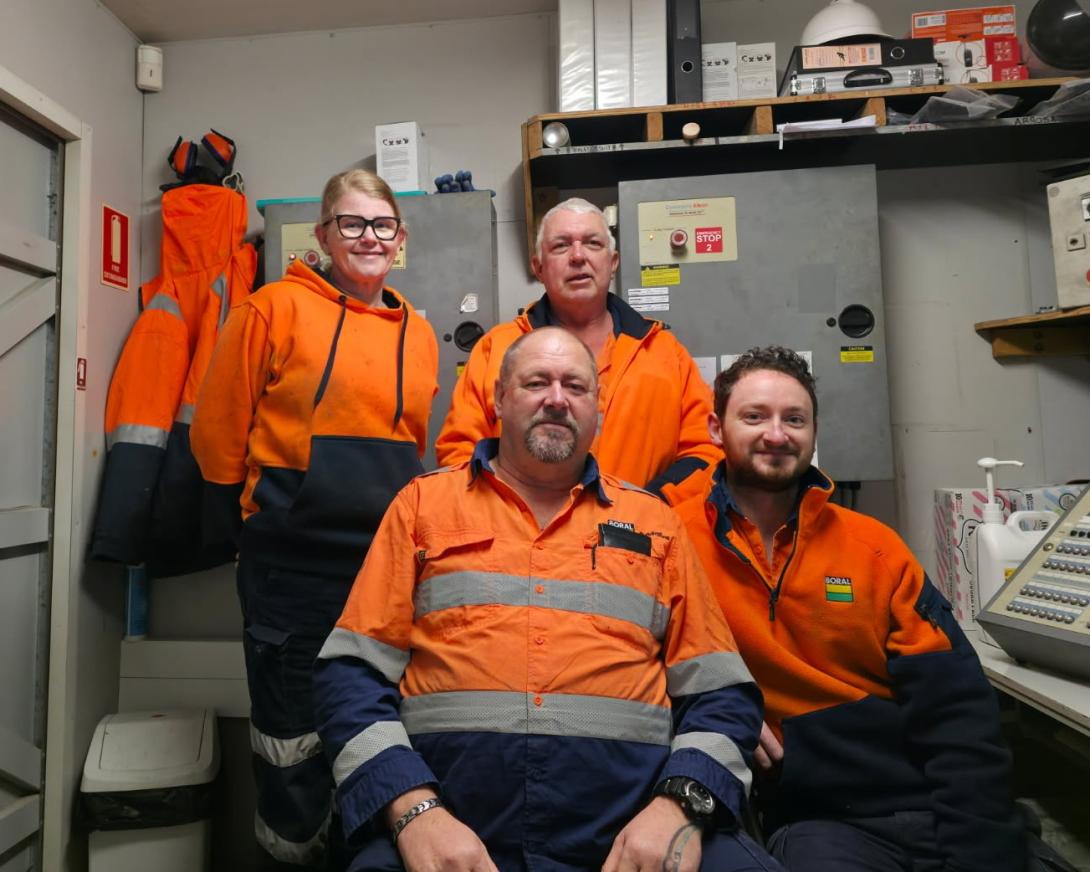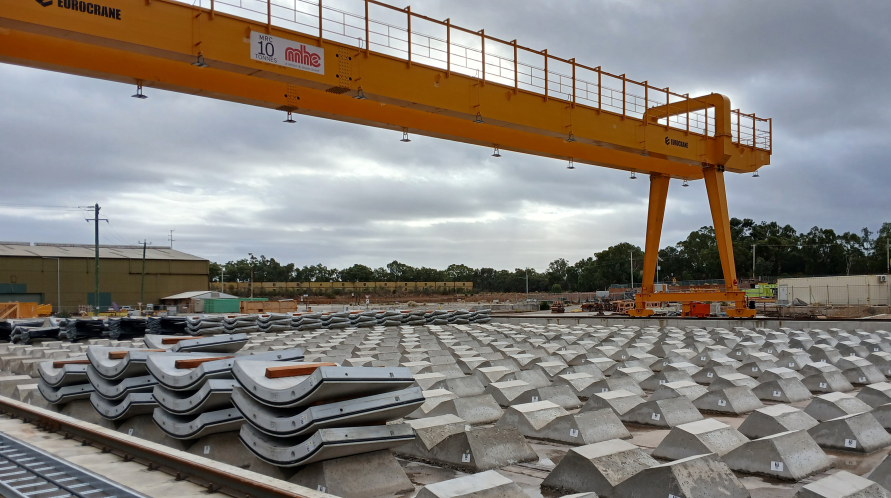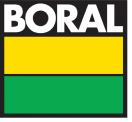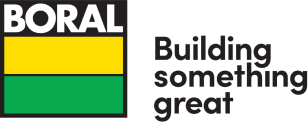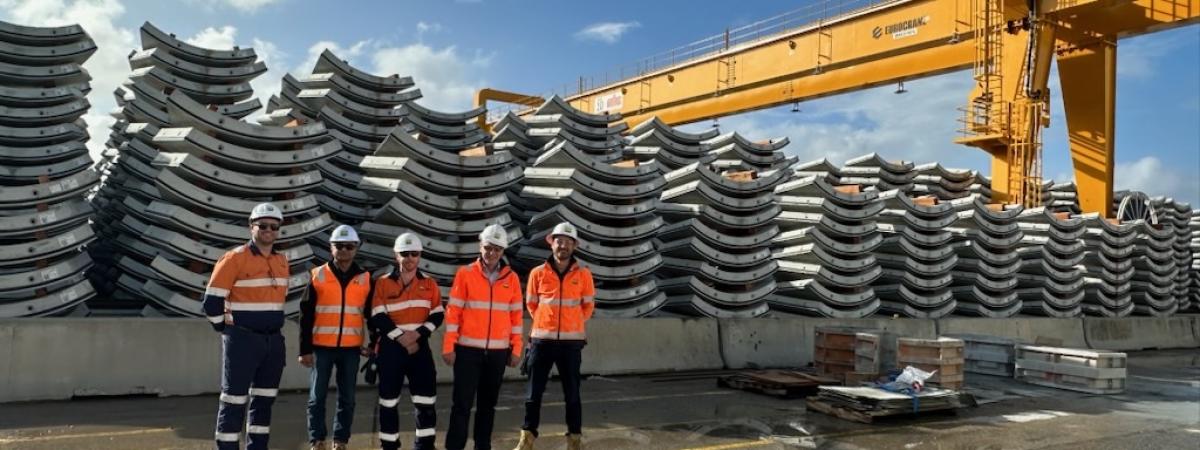As Western Australia faces a future of declining rainfall and increasing population, the Alkimos Seawater Desalination Plant (ASDP) is a critical investment in long-term water security. Located 40 kilometres north of Perth, the plant will deliver up to 100 billion litres of drinking water annually once both stages are complete. Boral is proud to have contributed to this landmark project, which will help ensure a sustainable, climate-resilient water supply for generations to come.
Project Challenge
The ASDP was conceived in response to a significant decline in rainfall across southern Western Australia, which has reduced streamflow into Perth’s dams by 80% since the 1970s. At the same time, groundwater allocations are being scaled back by 27% by 2028 to protect the environment. With Perth’s population forecast to reach 3.5 million by 2050, Water Corporation needed a new, rainfall-independent water source to meet growing demand.
The challenge was not only to deliver a large-scale desalination facility, but to do so in a way that met strict environmental standards, integrated with existing infrastructure, and aligned with the state’s renewable energy goals. The project also required complex marine and tunnelling works, including the construction of offshore intake and outfall tunnels in highly permeable soils.
The ASDP’s location within the Alkimos Water Precinct presented several technical and environmental challenges. The intake and outfall tunnels had to be designed for high internal pressures and connected to seabed structures via risers. These works required the construction of what may be the world’s largest secant piled peanut shaft, combining a tunnel boring machine (TBM) launch chamber with the permanent outfall and intake pumping station.
Onshore, the project had to be carefully integrated with the surrounding environment. Infrastructure is being built behind large, vegetated sand dunes to absorb noise and protect visual amenity. The approvals process required a public environmental review, biodiversity offset planning, and the development of a construction environmental management framework - all delivered within an eight-week timeframe.
Boral Solution
Boral was awarded the precast tunnel segment package for the ASDP, a critical component of the plant’s marine infrastructure. The scope includes the production of more than 31,000 S-class concrete tunnel segments, each over half a cubic metre in size. These segments form part of a 3.6-metre diameter tunnel, with six segments per ring.
In an unusual arrangement, Boral operated ACCIONA's subsidiary company Australian Precast Solutions (APS)'s on-site wet batch plant at Middle Swan, with high-quality materials supplied by Boral’s Orange Grove Quarry. “We’re not operating our own plant and equipment, which is a unique aspect of this project,” said Reece Mackey, Boral’s Concrete Support Manager. “We agreed to operate APS's plant with our own team, essentially providing labour and materials to the project.”
The concrete mix design was led by Sarvesh Mali and Dean Pattison, who conducted live agitator truck trials and mock-ups at Boral’s Baulkham Hills laboratory in New South Wales. Unlike traditional operations, this project uses a planetary mixer to batch concrete, which is then transported via a flying bucket on a rail system into a carousel production line. “There are no concrete trucks involved,” Reece explained. “The concrete is discharged into a hopper and then into moulds to form the tunnel segments. It’s a completely different process to our day-to-day operations.”
Production of the tunnel segments began in early April 2025, running 24 hours a day, Monday to Friday. Boral recruited and trained a dedicated team to operate the plant, with initial training taking place over three weeks before full operations commenced. The on-site operation delivered consistent quality under demanding conditions. Reece shared, “It’s awesome being part of our future planning - securing the sustainability of our drinking water for the next 100 years.”
This round-the-clock operation was supported by Boral’s broader WA concrete and logistics teams, ensuring a seamless supply chain and strong alignment with ACCIONA’s construction schedule.
Team Engagement
The success of Boral’s involvement in the ASDP is the result of close collaboration across multiple teams and disciplines. From technical design and testing to on-site operations and commercial support, the project has brought together expertise from across the country.
Boral's National Major Projects team played a key role in securing the work and coordinating early engagement. Weekly meetings between APS and Boral were held throughout the plant’s construction to maintain open communication and ensure alignment.
This collaborative approach allowed the team to finish 11 days ahead of schedule and reflects Boral’s commitment to partnership, innovation and delivery excellence on major infrastructure projects.
Project Outcomes
The Alkimos Seawater Desalination Plant will provide up to 100 billion litres of drinking water each year, enough to support around half a million people. It is a cornerstone of Western Australia’s long-term water strategy and a model for sustainable infrastructure delivery.
The project is also aligned with WA’s renewable energy goals. By 2035, it will be powered by 400 megawatts of clean energy sourced from local renewables projects. This energy will offset the operational demand of the ASDP and the state’s existing desalination plants, with power fed back into the grid.
Boral’s contribution has been central to the success of the project’s early stages. By operating the on-site batch plant and managing the full production process, Boral has helped ensure quality, efficiency and environmental compliance.
“This is a proud moment for Boral. Our people are not just supplying materials. They are helping deliver a project that supports water security, sustainability and the communities of Western Australia. It’s a perfect example of teams working together to build something great," said Andre Gobbett, Boral's General Manager of Concrete and Quarries in Western Australia.
Boral successfully completed production of 31,040 tunnel segments, totalling 15,711 cubic metres of concrete. Only 0.2% of segments were rejected, well below the 1.0% budget allowance, due to the quality of the concrete mix design, raw materials and the operational excellence of the concrete batch plant. The team finished 11 days ahead of schedule thanks to strong collaboration and innovative processes, overcoming significant logistical and technical challenges along the way.
The successful production of tunnel segments has enabled critical marine works to progress on schedule. Boral’s integrated approach has reduced logistical complexity and ensured consistent quality across thousands of components. The project has also demonstrated the value of early engagement, technical innovation and strong partnerships in delivering complex infrastructure.
Conclusion
The Alkimos Seawater Desalination Plant is a transformative project for Western Australia, and Boral is proud to be part of it. Our involvement demonstrates the power of collaboration, innovation and technical excellence in delivering infrastructure that matters.
“This package continues to promote Boral’s capabilities in tunnel segment production,” Reece added. “We’ve delivered successful outcomes on projects like the Forrestfield Airport Link, Sydney Metro West and Melbourne Metro Tunnel. Alkimos is another milestone in our journey.”
As the project moves toward completion in 2028, Boral remains committed to supporting its success and contributing to a more sustainable future. Boral is well-positioned to support Stage 2 of the ASDP and other major water infrastructure projects across Australia.
